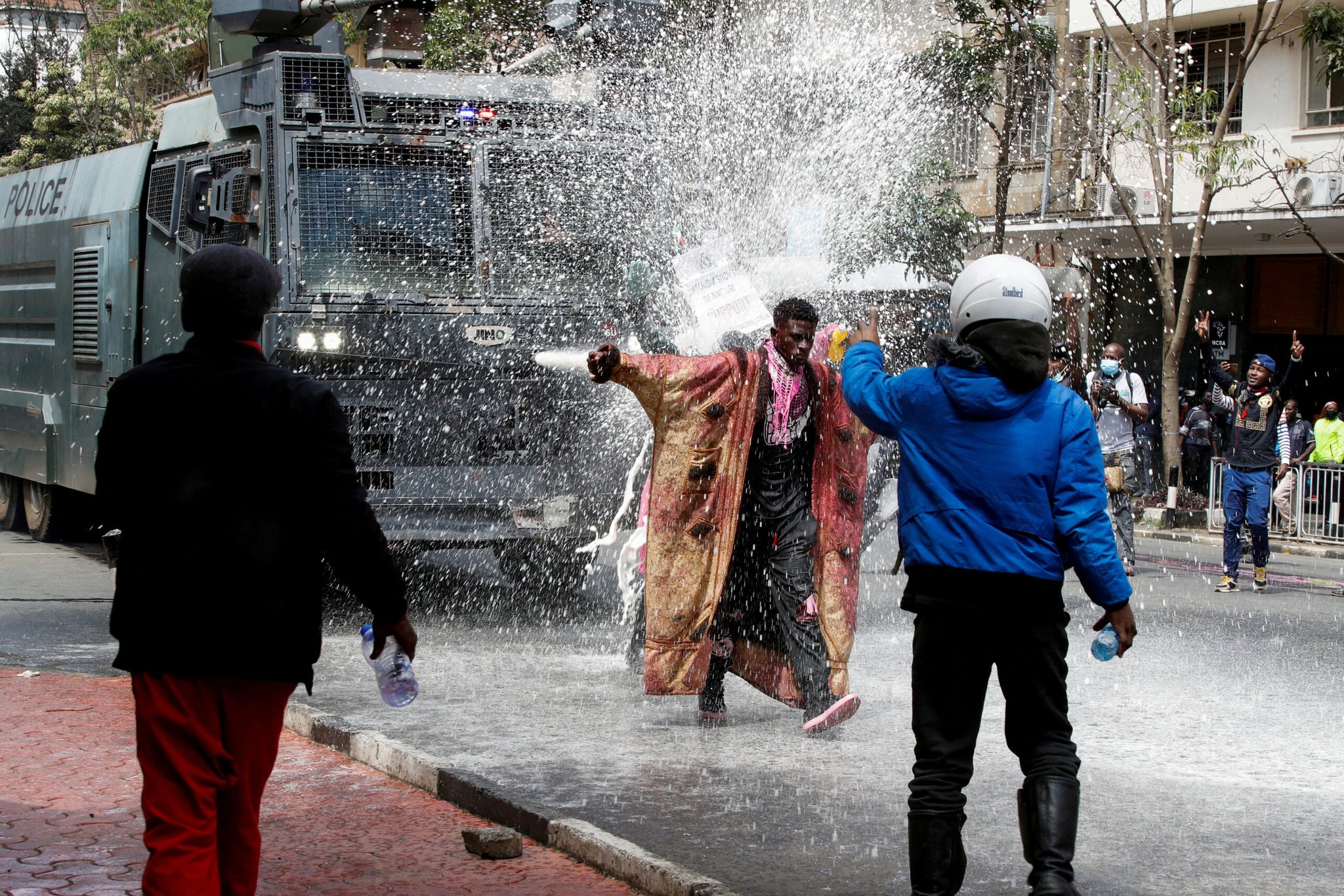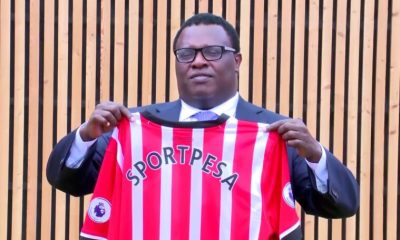News
Kenyan Activists Call For More Protests As Govt Pledges Austerity

But the demands of many protesters have escalated over the past two weeks to include calls to root out corruption and for Ruto to step down, presenting the most serious crisis of his two-year-old presidency.
An interview Ruto gave on Sunday evening to Kenyan television networks, in which he mostly defended the actions of the police and his government, seemed to have only hardened the positions of protesters.
On Monday, activists were sharing pamphlets on social media that urged people to occupy the capital Nairobi’s Central Business District. Many posted under the hashtag #OccupyCBDTuesday.
The protest movement has no official leadership, and it was not clear to what extent people would respond to these calls after tens of thousands came out last week in some of the country’s largest protests in recent memory.
In audio forums on social media, activists have been discussing how to maintain momentum now that the immediate objective of killing the finance bill has been attained.
SPENDING CUTS
In his interview on Sunday, Ruto reiterated his previous calls for dialogue with young people. He said he was prepared to do this in a forum of their choosing, including the X Spaces where they often gather to discuss issues and strategise.
Many protesters reject the calls for dialogue, seeing them as an effort to co-opt the movement.
“You can’t dialogue with someone who is killing you on the other hand,” one activist said during an X Space over the weekend.
Ruto defended the conduct of the police in his interview, saying they had done the best they could under the circumstances and blaming “criminals” who he said had hijacked peaceful protests.
Asked about this on Monday, Finance Minister Njuguna Ndung’u noted that there are legal limits on borrowing and the carrying capacity of debt.
“So it means that we must have expenditure cuts. This will be known once Parliament approves Supplementary one (budget),” he told Reuters in a text message.
Kenya’s national debt of more than 70% of gross domestic product already surpasses the statutory limit of 55% of GDP.
After withdrawing the bill, Ruto asked lawmakers to pass a supplementary budget, but parliament is currently in recess.
($1 = 128.5000 Kenyan shillings)
Kenya Insights allows guest blogging, if you want to be published on Kenya’s most authoritative and accurate blog, have an expose, news TIPS, story angles, human interest stories, drop us an email on [email protected] or via Telegram
-

 Business4 days ago
Business4 days agoCooking Fuel Firm Koko Collapses After Govt Blocks Sh23bn Carbon Deal
-

 Business3 days ago
Business3 days agoABSA BANK IN CRISIS: How Internal Rot and Client Betrayals Have Exposed Kenya’s Banking Giant
-

 Politics2 weeks ago
Politics2 weeks agoYour Excellency! How Ida’s New Job Title From Ruto’s Envoy Job Is Likely to Impact Luo Politics Post Raila
-

 Business2 weeks ago
Business2 weeks agoMinnesota Fraud, Rice Saga, Medical Equipment Deal: Why BBS Mall Owner Abdiweli Hassan is Becoming The Face of Controversial Somali Businessman in Nairobi
-

 Americas3 days ago
Americas3 days agoEpstein Files: Bill Clinton and George Bush Accused Of Raping A Boy In A Yacht Of ‘Ritualistic Sacrifice’
-

 News2 weeks ago
News2 weeks agoKenya Stares At Health Catastrophe As US Abandons WHO, Threatens Billions In Disease Fighting Programmes
-

 News2 weeks ago
News2 weeks agoDCI Probes Meridian Equator Hospital After Botched Procedure That Killed a Lawyer
-

 Investigations1 week ago
Investigations1 week agoPaul Ndung’u Sues SportPesa for Sh348 Million in UK Court, Accuses Safaricom Boss of Sh2.3 Billion Conspiracy















